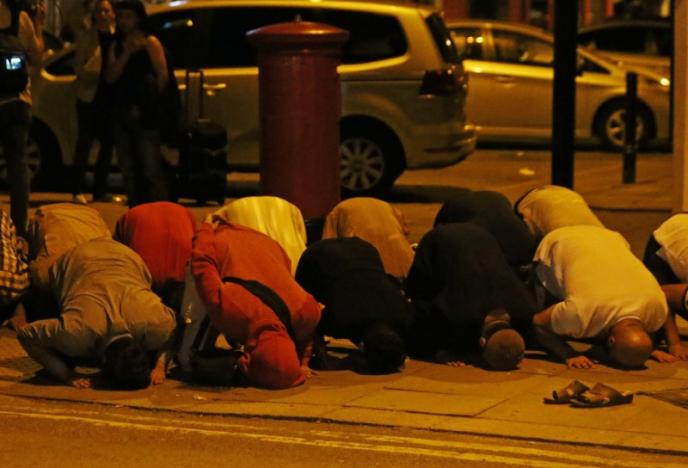Muslims urged to take 'stronger stance' against extremism and appoint British-born Imams
British-born imams must be appointed over those educated overseas to improve leadership among Muslims, a new report is advising.
The inquiry chaired by former attorney general Dominic Grieve found many mosque leaders are born and trained in other countries and said Muslims need 'better leadership' that was 'fit for purpose' and understood 'modern British life'.
In a bold interjection, Islamic leaders were urged to take a 'stronger stance' against persecution of other faiths including antisemitism and attacks on other branches of Islam.

Commissioned by the community organising group Citizens UK, the report said: 'It is of great importance that British-born imams, who have a good understanding of British culture and who fluently speak English, are encouraged and appointed in preference to overseas alternatives.'
Titled Missing Muslims: Unlocking British Muslim potential for the benefit of all, it recommended universities should offer accreditation and religious qualifications for imams.
Dominic Grieve said the project aimed to highlight inaccurate and 'potentially dangerous' views about British Muslims who, he said, face 'considerable challenges' from within their own communities that often prevent them from taking part in public life.
'Polls demonstrate significant scepticism across British society about the integration, and even the shared allegiance, of their British Muslim fellow citizens,' the Conservative MP for Beaconsfield wrote in the report's foreword.
'The Commission has also heard, forcefully expressed to it, the fear of many Muslims that, even in seeking to participate in public life or to work on a cross-community basis, they become subject to a much greater degree of adverse scrutiny, or to allegations about their motivation, than would be considered normal or acceptable for their non-Muslim counterparts,' he wrote.
'This is a matter for which there is overwhelming evidence.'
The panel found most Muslims live in urban areas and children attend schools where most other pupils are from the same ethnicity. A lack of intergration was most pronounced in deprived areas, it added, but said there was a 'wealth of positive community work' being done by British Muslims.











